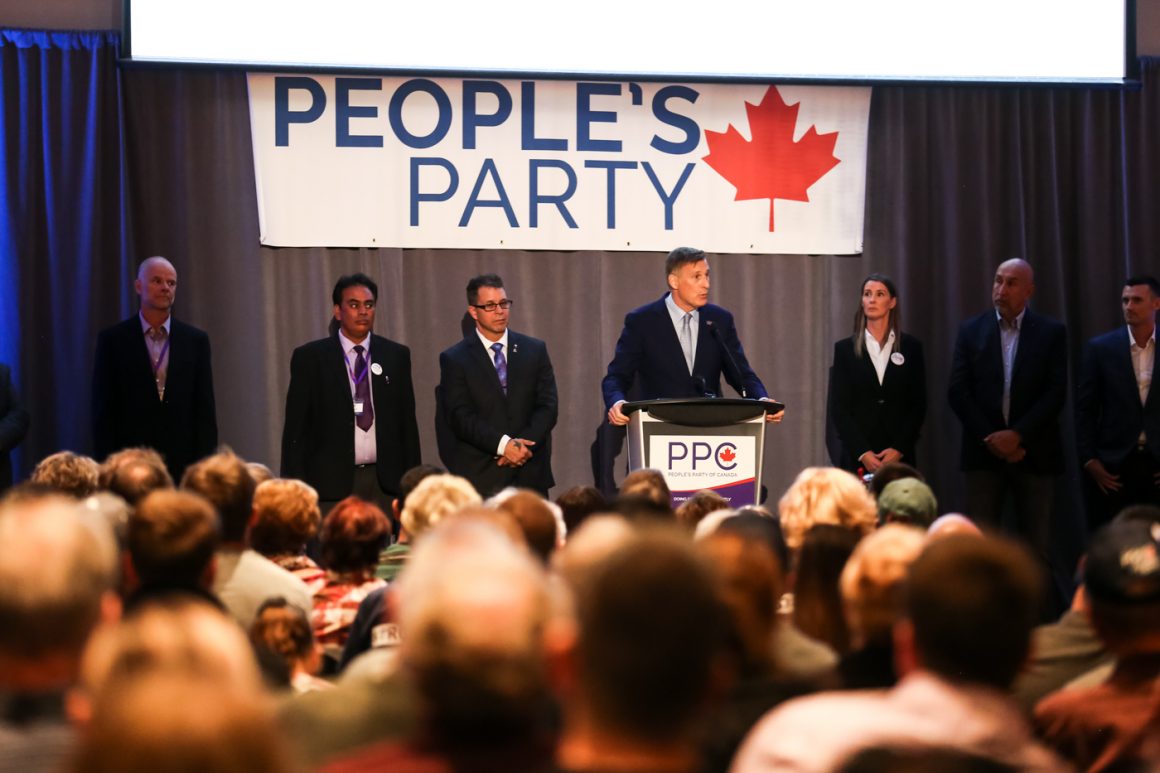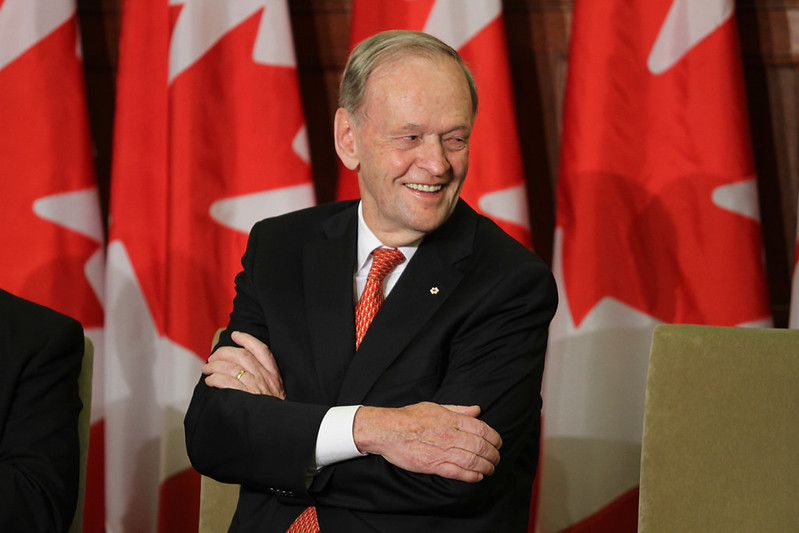
MadMax Math: Bernier’s Balanced Budget
By Kristy Koehler, October 1 2019—
At a Calgary campaign stop on Sept. 26, People’s Party of Canada leader Maxime Bernier pitched a balanced budget to a packed house, all while taking aim at the Conservative Party of Canada and their leader, Andrew Scheer.
Bernier has long insisted that he is the real conservative, not Scheer.
“I cannot understand why you would vote for Andrew Scheer, who won’t balance the budget in four years,” said Bernier. “He’s running to be the Prime Minister of Canada and usually, a mandate for a prime minister is four years. But, he’s telling you ‘I want to be prime minister for four years but I have an important commitment to you — that I will do in five years.’ Can you believe that? For me, that’s not a commitment.”
Bernier said a PPC government will make balancing the budget a priority because it’s unfair to a future generation that will have to pay off the current deficit.
“The deficits of today are the taxes of tomorrow,” he said. “We want to be fair with them, the future generations.
“Andrew Scheer says, ‘It’s too tough. I can’t do it. I need to spend more. I like spending,’” mocked Bernier, promising to not only balance the budget, but to be transparent with Canadians about how he plans to do so.
“It’s easy,” he said.
For illustrative purposes, Bernier set the current deficit at $20 billion.

Jean Chrétien // Photo courtesy of Michael Ignatieff/Flickr
“Go back in history, to 1995, a Chrétien government, a deficit of $30 billion in 1995,” Bernier told the audience. “It took the Liberals — Chrétien — two years to balance the budget. In 1997, we had a surplus of $3 billion. But, stay with me — $30 billion in 1995 is $43 billion of today’s money. So, our deficit is $20 billion. Chrétien was able to balance the budget with a deficit of $43 billion of today’s money in two years — and, he was a liberal. Andrew Scheer, a conservative, it will take him five years. We can do this in two years. If Chrétien did it, I can tell you that I will do it.”
Bernier went on to detail his plans to slash the deficit, starting with $5 billion in cuts to corporate welfare. He slammed Scheer for only agreeing to cut $1.5 billion from business subsidies, pandering to entrepreneurs and accusing him of buying votes from businesspeople.
“If a corporation is profitable, then that corporation won’t need any subsidies from the government,” said Bernier. And, he added, if they can’t manage their business and make it profitable before subsidies, they won’t be able to do so after receiving government money either.
Bernier accused Scheer of not understanding businesspeople. The Canadian Federation of Independent Business, according to Bernier, does not want subsidies either. We fact-checked the statement and Bernier is correct. Corinne Pohlmann, senior vice president of national affairs for the CFIB, said that the organization “generally does not support subsidies to business as they rarely ever benefit small businesses. We prefer to see that money used to reduce taxes so that many more businesses benefit not just a select few.”
Bernier continued his journey down deficit-dashing lane, asking the crowd what they thought was next on the chopping block.
“CBC!” someone shouted.
Yep, CBC was next. Bernier said we’d save “about a billion there,” to raucous applause from the crowd.
“We’re at $6 billion now and the deficit is $20 billion — it’s going well,” he laughed.
Next up — foreign aid. Four billion there, according to Bernier.
“We’re at $10 billion now, just like that, in one meeting,” he said, making sure to note that “Canadians are generous people” and that a PPC government would certainly be continuing to assist foreign countries in times of crisis.
More savings would come from abolishing the CRTC from the telecom industry and keeping government small. While the tone was light, flippant and humorous, Bernier is dead-serious from a policy perspective.
“If we want to create wealth, we need more investment,” he said. “You cannot spend your way to prosperity. We need to have more private investment. And, we know that more spending is not a stimulus for the economy — it is a sedative for the economy. So, we will have a pro-investment budget, the private sector will create wealth and growth and we’ll balance the budget in two years.”
When Bernier ran for leadership of the Conservative Party he did so on a platform of tax reforms that he brought with him to the PPC. Bernier plans to abolish the capital gains tax, raise the basic personal exemption to $15,000, eliminate multiple tax brackets so that income from $15,001 to $100,00 is taxed at 15 per cent, tax income over $100,001 at 25 per cent and eliminate what he calls “boutique tax credits that serve no public policy purpose.”
While the other parties are embarking on what’s been called “spend-a-palooza,” offering tax credits for everything from camping to solar panels, Bernier insisted that the PPC offers a genuine alternative.
“We’re not like the other political parties — the other ones are giving you goodies, a lot of goodies,” he said. “We’re not doing that. If you look at our platform we’re speaking about cuts, cuts, and cuts. But, that’s the only way to do politics. Our first budget will unleash the private sector. Flat tax on business, no more capital gains tax, ending corporate welfare.
“We’ll use all our surplus to give you more of your own money in your own pocket because you know better than me and our candidates what to do with your money.”
But, Bernier said, “the goodies will come after that. We’ll have a surplus and the surplus will be your goodies.”
